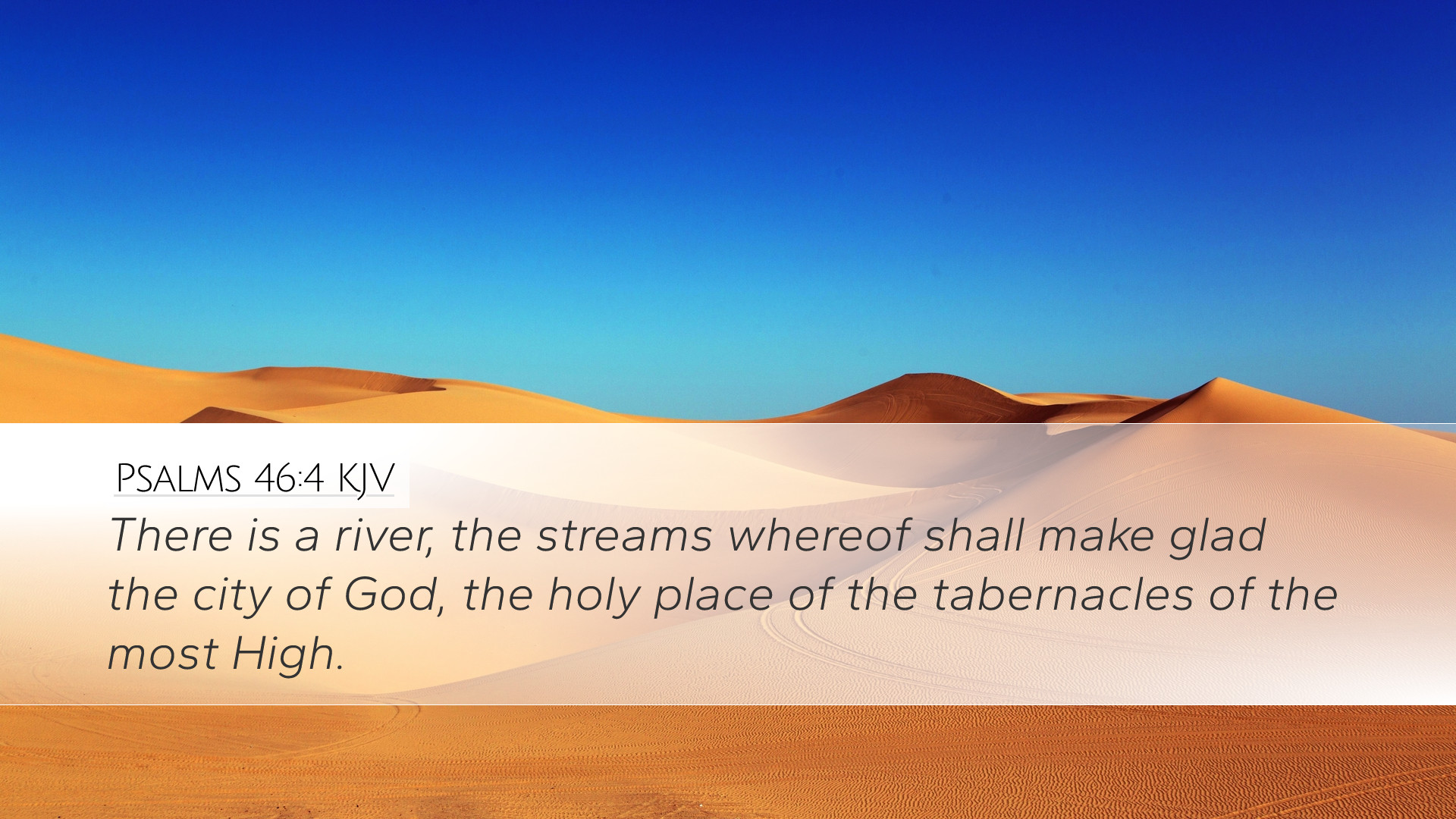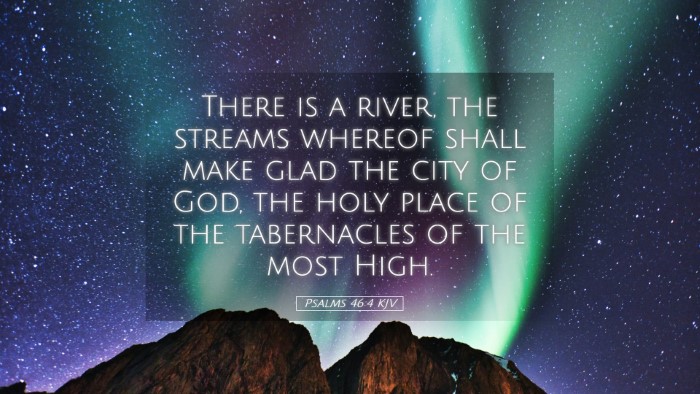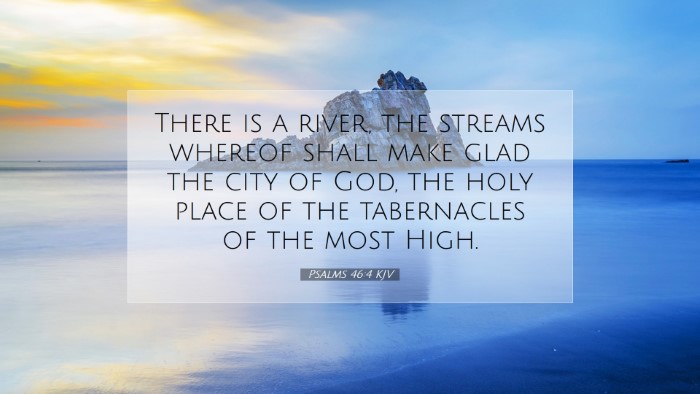Commentary on Psalms 46:4
Verse: "There is a river, the streams whereof shall make glad the city of God, the holy place of the tabernacles of the most High."
This verse from Psalms 46 introduces a profound imagery that has resonated through the ages, offering insights into God's sustaining presence among His people. The metaphor of a river carries rich theological significance, encompassing themes of joy, security, and divine provision.
1. The Significance of the River
Matthew Henry notes that the river symbolizes the presence of God and the abundance of the blessings He bestows on His people. Just as a physical river brings life and sustenance to a community, God's presence brings spiritual nourishment and joy to His followers. Henry elaborates that the "streams" refer to the various means through which God’s grace flows into the lives of believers, including His Word, prayer, and the sacraments.
Albert Barnes highlights that the city of God, often interpreted as Zion or the heavenly Jerusalem, stands assurance of the security and joy that come from God’s presence. The river, as he explains, represents the unceasing flow of blessings that comforts God's people, suggesting that the joy derived from God's presence is both profound and deeply fulfilling.
Adam Clarke emphasizes that the "streams" refer to the specific modes of God's providence which enrich the life of the faithful. He interprets this imagery as a call to recognize the various ways God meets the needs of His people, thus enhancing their joy and reinforcing their faith in His providence.
2. The City of God
The phrase "the city of God" carries deep ideological weight. It serves not only as a physical reference to Jerusalem but also as a representation of God's eternal kingdom.
- Theological Implication: Both Henry and Barnes acknowledge the eschatological dimension of this "city." It symbolizes the ultimate destination of God's people, where joy, peace, and the presence of God will be fully realized in eternity.
- Security and Stability: Clarke underscores that the portrayal of this city as being sustained by a river conveys the idea that believers are fortified against life's trials and chaos. The assurance that God provides a spiritual refuge is paramount for understanding the emotional and spiritual stability offered through faith.
3. The Role of the Tabernacles
The reference to "the holy place of the tabernacles of the most High" further enriches the interpretation of this verse. The tabernacles represent the dwelling place of God among His people.
- God’s Intimacy: Matthew Henry reminds us that the "tabernacles" signify how God chooses to dwell among His people, offering both a personal and communal understanding of divine presence. This intimacy fosters a deep sense of belonging and security.
- Contrast with Earthly Structures: Clarke points out that while earthly structures may fail, the "most High" remains eternally present, making the spiritual tabernacle a source of lasting joy and hope.
4. Theological Reflections
This verse invites deeper theological reflections regarding the nature of God as a source of joy and sustenance amidst tumultuous times. In examining the historical context, we realize that the Israelites faced numerous threats and uncertainties. Thus, this verse serves as a reminder of God's faithfulness and unchanging nature, promising peace and joy regardless of external circumstances.
- Hope in Adversity: The comfort offered in this passage is especially poignant for pastors and theologians, reminding them of their role in guiding others back to the source of joy—God’s abiding presence.
- Spiritual Barrenness: For students and scholars, this passage serves as a profound reminder of the dangers of spiritual barrenness and the need to remain connected to the 'river' of God’s grace that continually nourishes and invigorates the believer’s life.
5. Practical Applications
In light of this commentary, there are several practical applications for today’s church leaders and scholars:
- Encouragement for the Weary: This verse can be a source of encouragement for those facing spiritual dryness or emotional distress. Congregations need to be reminded that God's presence is a continual renewal of joy.
- Emphasis on Worship: Understanding that God dwells in the midst of His people can inspire richer worship experiences, drawing individuals into a deeper relationship with Him.
- Community Building: The notion of the "city of God" encourages the church community to foster an environment of support and encouragement, where believers can experience the joy of shared faith and mutual edification.
Conclusion
Psalms 46:4 encapsulates a vision of God’s sustaining grace and joy that flows like a river. As we consider the insights from historical commentators like <strong>Matthew Henry</strong>, <strong>Albert Barnes</strong>, and <strong>Adam Clarke</strong>, we are reminded of God's faithfulness and the continuous flow of His blessings. In a world filled with uncertainties, the promise of joy found in God’s presence within the "city of God" remains a formidable source of strength and hope.


